Search alphabetically (by title):
- ALL
- #
- 0
- 1
- 2
- 3
- 4
- 5
- 6
- 7
- 8
- 9
- A
- B
- C
- D
- E
- F
- G
- H
- I
- J
- K
- L
- M
- N
- O
- P
- Q
- R
- S
- T
- U
- V
- W
- X
- Y
- Z
Titles
Don W. King
|
Filed under: Award Winners, French History, Military Service, Tolkien, Lewis, and Inkling Studies
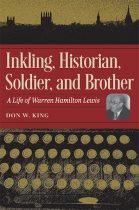
Detailing the life of Warren Hamilton Lewis, author Don W. King gives us new insights into the life and mind of Warren’s famous brother, C. S. Lewis, and also demonstrates how Warren’s experiences provide an illuminating window into the events, personalities, and culture of 20th-century England. Inkling, Historian, Soldier, and Brother will appeal to those interested in C. S. Lewis and British social and cultural history.
Filed under: Award Winners, French History, Military Service, Tolkien, Lewis, and Inkling Studies
James A. Owen
|
Filed under: Black Squirrel Books, Science Fiction and Fantasy, Tolkien, Lewis, and Inkling Studies
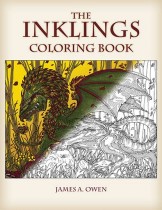
Renowned fantasy illustrator James A. Owen presents fifteen intricate and imaginative line drawings inspired by the works of Oxford’s famous Inklings and Diana Glyer’s fascinating Bandersnatch.
Printed on heavy stock on one side only, each drawing is suitable for markers, fine-tipped pens, and colored pencils. Color your way through The Eagle and Child pub, along the banks of the Isis, beneath the spires of Magdalene College—and find (and color!) the bandersnatch hidden in each picture.
Tags: Bandersnatch, Inklings, James Owen Filed under: Black Squirrel Books, Science Fiction and Fantasy, Tolkien, Lewis, and Inkling Studies
William L. Tabac
|
Filed under: Audiobooks, Award Winners, History, Regional Interest, True Crime, True Crime History
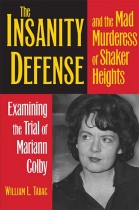
They have no witnesses. They have no case. With this blunt observation, Mariann Colby—an attractive, church-going Shaker Heights, Ohio, mother and housewife—bet a defense psychiatrist that she would not be convicted of murder. A lack of witnesses was not the only problem that would confront the State of Ohio in 1966, which would seek to prosecute her for shooting to death Cremer Young Jr., her son’s nine-year-old playmate: Colby had deftly cleaned up after herself by hiding the child’s body miles from her home and concealing the weapon.
Tags: Cleveland, Crime, murder, shaker heights, Wicked Women of Ohio Filed under: Audiobooks, Award Winners, History, Regional Interest, True Crime, True Crime History
Herbert Woodward Martin
|
Filed under: Discover Black History, Poetry
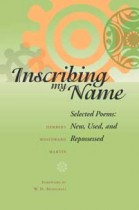
Martin’s poetry captures life in the Midwest through the authenticity of his voice, his dramatic sense, and the wonderful innovation of his multidisciplinary talents (poet, scholar, teacher, librettist, and performer). From his first volume of poetry in 1969 to Inscribing My Name, Martin’s work brings alive important issues and struggles in our understanding of what it means to be human. This accomplished body of work is a unique combination of traditional poetic forms, the African American musical tradition, and Martin’s extensive experience creating and performing theater and opera.
Filed under: Discover Black History, Poetry
Gary E. Polster
|
Filed under: History, Regional Interest, Religion
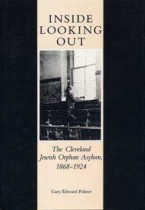
The Cleveland Jewish Orphan Asylum was for fifty years (1868-1918) the home for some 3,500 boys and girls, most of them immigrants from Eastern Europe. Gary Polster’s study examines the efforts of the more acculturated German Jews of Cleveland to “Americanize” and make good workers of the newcomers, and to teach a Judaism quite removed from the Yiddish culture and religious orthodoxy of Eastern Europe. The dominant figure at the asylum during the formative years was Samuel Wofenstein (1841-1921), a native of Moravia who by the age of 22 had earned both a rabbinical degree and a Ph.D in philosophy.
Filed under: History, Regional Interest, Religion
Ariana-Sophia Kartsonis
|
Filed under: Poetry, Wick First Book
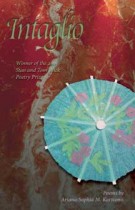
“The image evoked by Intaglio, this first collection by Ariana-Sophia Kartsonis, rests on a paradox, one perhaps central to the poetic impulse itself: that design can be shaped by what is cut away, by the loss that surrounds it, so that what is missing creates the negative space which raises the figure in relief, presents it to sight, and touch. Relief: a word whose two meanings—one artistic and material, the other emotional and intangible, together suggest how art engraves meaning.” —Eleanor Wilner, Judge
Filed under: Poetry, Wick First Book
Rosemary Willey
|
Filed under: Poetry, Wick First Book
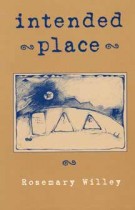
“Many of the poems in Rosemary Willey’s Intended Place are flawless meditations on possibility and denial. The voice in these poems is straightforward, and there isn’t an emotional placebo behind the terse syntax and the believable imagery… From the very first few pages, we realize that this voice embodies empathy and a to-the-point inquiry. Rosemary Willey cannot keep her mind off the real things of this world, touching life where it feels good and where it pains, always snapping the chanced wishbone, and we are more blessed and richer for her daring talent.”—Yusef Komunyakaa, Judge
Filed under: Poetry, Wick First Book
John David Smith
|
Filed under: African American Studies, Discover Black History, Interpreting American History, U.S. History, Understanding Civil War History
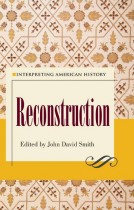
Writing in 1935 in his brilliant and brooding Black Reconstruction, W. E. B. Du Bois lamented America’s post–Civil War era as a missed opportunity to reconstruct the war-torn nation in deed as well as in word. “If the Reconstruction of the Southern states, from slavery to free labor, and from aristocracy to industrial democracy, had been conceived as a major national program of America, whose accomplishment at any price was well worth the effort,” wrote Du Bois, “we should be living today in a different world.”
Filed under: African American Studies, Discover Black History, Interpreting American History, U.S. History, Understanding Civil War History
Brian D. McKnight and James S. Humphreys
|
Filed under: Audiobooks, Interpreting American History, U.S. History
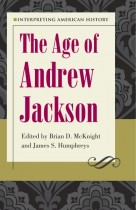
Historians possess the power to shape the view of history for those who come after them. Their efforts to illuminate significant events of the past often result in new interpretations, which frequently conflict with ideas proposed by earlier historians. Invariably, this divergence of thoughts creates a dissonance between historians about the causes and meanings of prior events. The Kent State University Press’s new Interpreting American History Series aims to help readers learn how truth emerges from the clash of interpretations present in the study of history. In the series’s first volume, Interpreting American History: The Age of Andrew Jackson, experts on Jacksonian America address the changing views of historians over the past century on a watershed era in U.S. history.
Filed under: Audiobooks, Interpreting American History, U.S. History
Aaron D. Purcell
|
Filed under: Interpreting American History, U.S. History
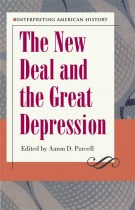
In this second volume of the Interpreting American History series, experts on the 1930s address the changing historical interpretations of a critical period in American history. Following a decade of prosperity, the Great Depression brought unemployment, economic ruin, poverty, and a sense of hopelessness to millions of Americans. President Franklin D. Roosevelt’s New Deal programs aimed to bring relief, recovery, and reform to the masses.
Filed under: Interpreting American History, U.S. History
Subject/Title category archive











